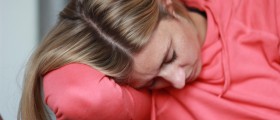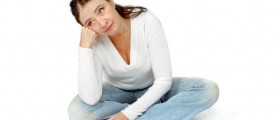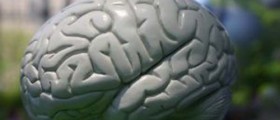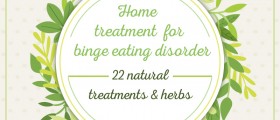
Premenstrual syndrome, also known as simply PMS, is a collection of various physical and emotional symptoms and disturbances related to woman’s menstrual cycle. Almost all women have some kind of premenstrual symptoms, which may range from mild to severe. It estimated that approximately 85% of women suffer from premenstrual symptoms on a regular basis. About 20 to 30 percent of women have very severe symptoms of PMS that usually affect their normal functioning. The symptoms usually start after the ovulation and typically end with the onset of the menstrual flow.
PMS and mood swings
Premenstrual syndrome manifests in a number of symptoms. More than 200 different symptoms have been associated with the premenstrual syndrome, and probably the biggest complaint from those dealing with it are mood swings. The three most prominent symptoms associated with the premenstrual syndrome are irritability, tension and extreme unhappiness. Women often complain about increased stress, anxiety, problems with falling asleep, severe headaches, low energy levels, increased emotional sensitivity and negative changes of libido.
What causes PMS related mood swings
The exact causes of PMS related mood swings are not fully understood. The symptoms vary among different individuals so drastically that it makes it truly hard to establish a firm diagnosis and support possible theories. None of the theories have been completely proven but most of them suggest that mood swings related to PMS occur as a reaction to changes in the levels of sex hormones and neurotransmitters in the brain. On the other hand, it has been proven that psychological stress doesn’t affect the severity of PMS. Genetic factors also seem to play a role, as up to 40% of women with symptoms of PMS have a significant decline in their circulating serum levels of beta-endorphin neurotransmitter.
Treatment for PMS mood swings
Various treatments have been used to treat the symptoms of premenstrual syndrome. Most of the treatments advise dietary or lifestyle changes. Vitamin and mineral supplements are also often used. Calcium supplementation of 1200 mg per day can be useful. Taking more vitamin E than usual, at least 400 IU per day, should also be effective. Increased daily intake of vitamin B, magnesium, manganese and tryptophan are also advised. The treatment is based on elevation of serotonin levels, which can easily be done by taking regular exercises and reducing bad habits such as excessive caffeine intake, or consumption of alcohol and cigarettes. The use of natural herbal remedies such as St. John's wort, Pulsattilla or chamomile tea is also strongly advised.

















Your thoughts on this
Loading...